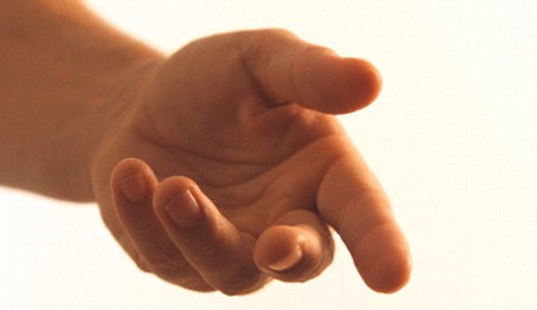 Just the subtlest of differences in the movement of our hands could reveal our inherent personality traits, research has revealed.
Just the subtlest of differences in the movement of our hands could reveal our inherent personality traits, research has revealed.
By analysing and classifying these movements, health professionals could one day treat mental health conditions such as autism and schizophrenia.
Researchers have shown we all have an individual motor signature (IMS) but people who display similar behavioural characteristics tend to move in a similar way.
A team of experts from the universities of Exeter, Bristol, Montpellier and Naples Federico II, studied how people mirrored each other and themselves as an avatar on a screen.
They suggest everyone has an IMS, or blueprint of the subtle differences in the way we move compared to someone else.
Krasimira Tsaneva-Atanasova, who specialises in mathematics in healthcare at the University of Exeter, told MailOnline: ‘What we found is that each individual has their own preferred style of movement, or velocity profile.’
She said this was the case when participants were tested weeks and even months apart, so in the future individuals may be able to be identified simply by how they move.
The differences may be in the speed or weight of movement, but the study, published in the Royal Society journal Interface, does not go as far as classifying specific movements associated with certain personality traits
‘Although human movement has been well studied, what is far less well understood is the differences each of us displays when we move – whether it is faster, or lighter, or smoother for example,’ said Dr Tsaneva-Atanasova said.
However, she said ‘velocity is one of the main features and is sufficient to get a signature’.
Using a plain mirror game, in which two ‘players’ are asked to imitate each other’s movements, the team showed that while people’s movements were unique, those using similar movements tended to display ‘more organised collective behaviour’ to complete the mirroring task better.
They believe these findings indicate that people with comparable movement blueprints find it easier to coordinate with each other during interpersonal interactions.
‘This study shows that people who move in a certain way, will also react in similar ways when they are performing joint tasks,’ Dr Tsaneva-Atanasova said.
‘Essentially, our movements give an insight into our inherent personality traits.
‘What we demonstrate is that people typically want to react and interact with people who are similar to themselves.
‘But what our study also shows is that movement gives an indication of a person’s behavioural characteristics.’
The researchers think a person’s IMS, together with how they interact with others, could give experts an insight into their mental health and could pave the way for personalised prediction, diagnosis or treatments in the future.
So those who move in a distinctly different way, may have a condition not shared with the majority of a population.
People with autism or schizophrenia, for example, could potentially be diagnosed by performing a simple tactile task, rather than undergoing more invasive tests such as lying in CT scanners, Dr Tsaneva-Atanasova, said.
The research could lead to new therapeutic therapies being developed, such as a computer program where people shy of interaction with others could learn to mimic movements made by an avatar to improve their communication.
‘It could help people with social phobias become more interactive,’ Dr Tsaneva-Atanasova said.
The research is part of a wider EU-funded project called Alter Ego, which is still ongoing.
In the future, the team hopes to study the movements of healthy people and those with schizophrenia.
Taken from DailyMail.Co.Uk
